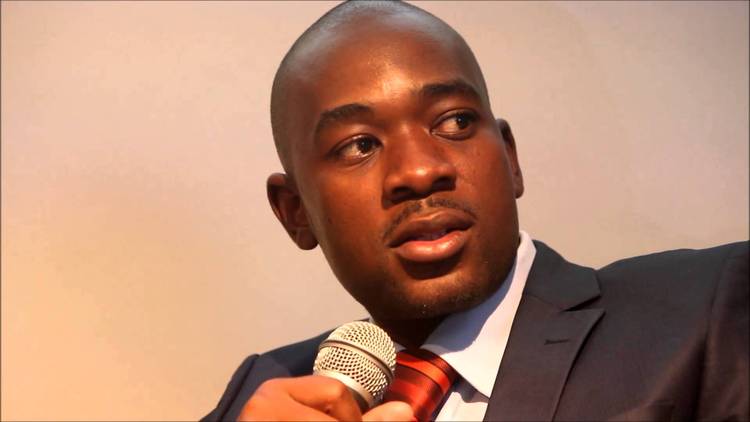
The Sunday Mail

Tau Tawengwa
In October 2017 it emerged that an opposition MDC Alliance member, the Multi-Racial Christian Democrats, had written to Queen Elizabeth II.
In their letter, the party asked that Britain relax its stance on Zimbabwe and consider lifting stated and unstated sanctions imposed on Zimbabwe. Cde Robert Mugabe was still at the helm, and the opposition was implementing a strategy aimed at pre-empting his arguments that opposition-inspired sanctions were the cause of citizens’ economic woes.
A mere two-and-a-half months later, more members of the MDC Alliance appeared before a United States Congressional Committee on Foreign Relations in the United States to appraise the Americans on the situation in Zimbabwe.
This time the opposition is asking for an extension of US sanctions on Zimbabwe. Representatives of the MDC Alliance who travelled to America are MDC-T vice-president Nelson Chamisa and the People’s Democratic Party’s Tendai Biti. They were accompanied by one other obscure chap.
Stephanie Sullivan, the principal deputy assistant director in the Bureau of African Affairs at the US State Department, appeared before the committee alongside Peter Godwin, the author. Ever since this panel appeared before that committee, social media have been awash with disparate sentiments.
On the one hand, some feel betrayed, particularly by the MDC Alliance. This group feels that opposition calls for what is generally perceived to be maintenance of sanctions will further the suffering of ordinary Zimbabweans.
There is a strong feeling that the opposition wants to sacrifice livelihoods on the altar of political expediency.
On the other hand, there are those who support the opposition.
Ideology or diplomacy?
Information at hand suggests inflation is still taking a toll and that the liquidity problem is only moderately better.
This is not good news for the citizen who naively believed President Mugabe was the source of all economic problems and concluded that his removal was a panacea in itself. Now that reality is setting in, citizens are looking to President Emmerson Mnangagwa and Zanu-PF for solutions.
What we have is the anti-sanctions ideology and a drive to re-engage the international community. President Mnangagwa seems eager to take a more diplomatic and moderate approach to international relations than his predecessor.
While some Zimbabweans have adopted a wait-and-see approach towards the new Government, opposition politicians are adamant that President Mnangagwa’s team will fail to bring any meaningful economic change before elections and that he will be no different from his predecessor.
These are opposition politicians who think President Mnangagwa is “beat-able”, which is misconstrued.
He is only “beatable” inasmuch as Zanu-PF is beatable as he is now the face of Zanu-PF.
As long as Zanu-PF’s political infrastructure remains intact, the opposition does not stand a chance against a Zanu-PF Presidential candidate in 2018. This is the reason why the opposition is calling for an extension of sanctions. They want to hold elections under conditions that favour them.
Nevertheless, I have argued elsewhere and I will argue again here that Zanu-PF is poised to win the 2018 harmonised elections on the back of Command Agriculture and the rural vote. Cde Mugabe’s resignation and his wife’s expulsion from the party have only further contributed to re-energising what were previously disoriented and disgruntled Zanu-PF urban structures.
As of November 21, 2017, Zanu-PF’s urban support base has grown and come 2018, Zanu-PF will give the opposition a run for its money in Harare and Bulawayo.
It is in this light that the opposition’s recommendations to the US Congressional Committee on Foreign Relations should be viewed.
Essentially, the MDC Alliance knows it doesn’t stand a chance under current conditions. It is, therefore, reverting to its old ways of sanctions-mongering.
What’s needed now is for President Mnangagwa and his team to score essential wins on behalf of the electorate, beginning with solutions to cash shortages and critical services like healthcare and education.
One thing is certain: After Zanu-PF wins the 2018 harmonised elections, the opposition will take a long time to recover.



